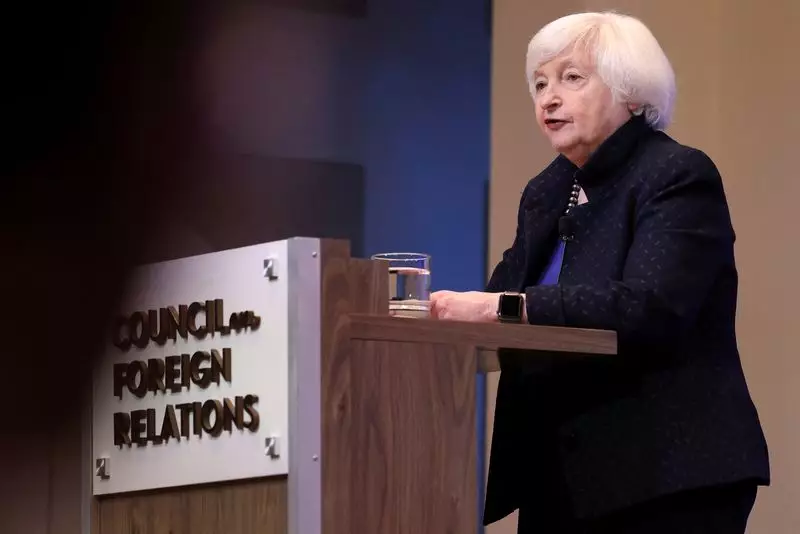In a recent address to the Council on Foreign Relations in New York, U.S. Treasury Secretary Janet Yellen articulated a strong critique of protectionist economic policies, notably those espoused by prominent political figures like Donald Trump. Yellen’s stance serves as a crucial reminder of the potential negative implications of isolating the U.S. economy through unilateral actions, particularly those that involve steep increases in tariffs. She emphasizes that such strategies, aimed at shielding American businesses and consumers, may in fact lead to economic detriment rather than enhancement.
Yellen warns that embracing a fortress-like approach to trade, characterized by high tariffs imposed uniformly on both allies and adversaries, would ultimately harm the very consumers it intends to protect. Such measures can inflate prices for American households, destabilize markets, and compromise the competitiveness of U.S. companies in the global arena. This perspective counters the notion that tariffs serve as a beneficial tool for promoting domestic manufacturing, illustrating that the complexities of international trade require a more nuanced approach than blunt restrictions.
In her statements, Yellen refrained from explicitly naming Trump, yet her critique directly targeted his proposed economic policies. Trump’s proposals, characterized by sweeping tariff increases on various imports—including a staggering 60% on Chinese goods—represent a retreat into a contentious form of economic nationalism. However, Yellen advocates for the continuation and deepening of trade relationships rather than severance. She asserts that constructive engagement with foreign markets, particularly China, can yield substantial rewards for American firms and workers, fostering innovation and economic growth.
Yellen’s emphasis on collaborative economic relationships is especially pertinent in the current global landscape. Instead of fostering a competitive advantage, a return to aggressive trade barriers would likely alienate key trading partners, pushing them to seek alternative markets. This could initiate a detrimental cycle of retaliation that undermines international economic cooperation and stability.
Yellen further contextualizes her arguments by linking them to pressing global issues that the U.S. confronts today, such as the ongoing conflict in Ukraine and concerns over China’s industrial practices. A protective economic strategy undermines the ability of the U.S. to exert influence and lead international conversations on these critical matters. Effective collaboration is essential for addressing not only economic challenges, including supply chain disruptions, but also security issues and geopolitical tensions.
By advocating for a level playing field and calling for fairer trade practices, Yellen underscores the necessity of addressing the systemic barriers that American companies face in foreign markets, particularly in China. These barriers pose significant challenges not just to American businesses, but also to international companies wishing to compete in the Chinese market. The call for a more equitable economic relationship signifies a recognition that, while competition is essential, cooperation is equally vital for sustainable economic prosperity.
A pivotal point made by Yellen involves the strategic nature of tariff policies. She acknowledged the Biden administration’s approach to imposing tariffs on strategically important sectors, such as electric vehicles and semiconductors, asserting that these measures are aligned with global economic trends. The notion of a coalition of allied nations taking similar actions against unfair practices in China underscores a growing international consensus that could yield collective leverage against those practices.
This comprehensive approach contrasts sharply with isolationist policies, underscoring the need for the U.S. to lead through partnership rather than division. Yellen’s remarks highlight that safeguarding American interests does not have to come at the cost of international engagement; indeed, a balanced approach can enhance both national security and economic competitiveness.
Secretary Yellen’s address serves as a critical reflection on the challenges of contemporary economic policy-making in an interdependent world. Shielding the U.S. economy through drastic tariffs is not only myopic, but it could also jeopardize future economic stability and compromise essential trade relationships. By fostering an environment that promotes collaboration and fair competition, the U.S. can position itself effectively for long-term prosperity while addressing the complex challenges posed by globalization. The call for a healthier economic relationship with all partners, especially China, is not only prudent but essential for navigating the intricacies of the modern economy.

